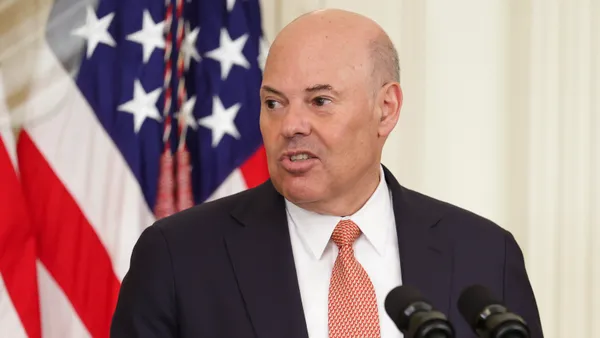Dive Brief:
- The Kansas Chapter of the Council on American-Islamic Relations filed a complaint Aug. 25 with the U.S. Equal Employment Opportunity Commission alleging a woman working at a Chipotle Mexican Grill restaurant was subject to religious harassment.
- According to the complaint, the worker's assistant manager repeatedly demanded her to remove her hijab — her religious head cover — so he could "see her hair." He also pulled at her hijab, the employee said.
- The council later said that Chipotle fired the manager who allegedly harassed the worker after an investigation into his conduct. In a statement provided to the council, Chipotle Chief Corporate Affairs Officer Laurie Schalow said that the restaurant does not tolerate any kind of discrimination, and it encourages employees to make use of its "anonymous 800 number" to report any concerns.
Dive Insight:
The fact pattern unfolding between the worker, Chipotle and EEOC may help employers better understand several elements of religious discrimination.
First, religious discrimination at work is prohibited by Title VII of the Civil Rights Act of 1964, which is enforced by EEOC. This prohibition includes religious harassment, according to the agency.
"Harassment can include … offensive remarks about a person's religious beliefs or practices," EEOC says. "Although the law doesn't prohibit simple teasing, offhand comments, or isolated incidents that aren't very serious, harassment is illegal when it is so frequent or severe that it creates a hostile or offensive work environment or when it results in an adverse employment decision."
The worker who experienced the alleged harassment said in her complaint that she gave her two weeks' notice when the store manager followed up on her report of misconduct saying that the assistant manager was reprimanded and faced no other consequences for his behavior. Once she gave notice, however, she was not placed on the work schedule again, she said.
The worker's allegations may remind employers of their duty under Title VII to make available certain accommodations for religious employees. Employers may need to create certain policy changes to accommodate Muslim employees; for instance, an employer may need to amend its rule against hats and other head coverings in the workplace to allow Muslim women to wear hijabs.
Other accommodations that may be necessary for Muslim workers include schedule changes, according to the group that announced the worker's complaint. As outlined in An Employer's Guide to Islamic Religious Practices, Islam requires believers pray five times per day at certain times. The prayer takes about 15 minutes, which means workers can usually complete the ritual during a meal or rest break, the guide said. In workplaces with rigid schedules, "employers must work out a reasonable arrangement for those employees to pray within the prescribed time period."














